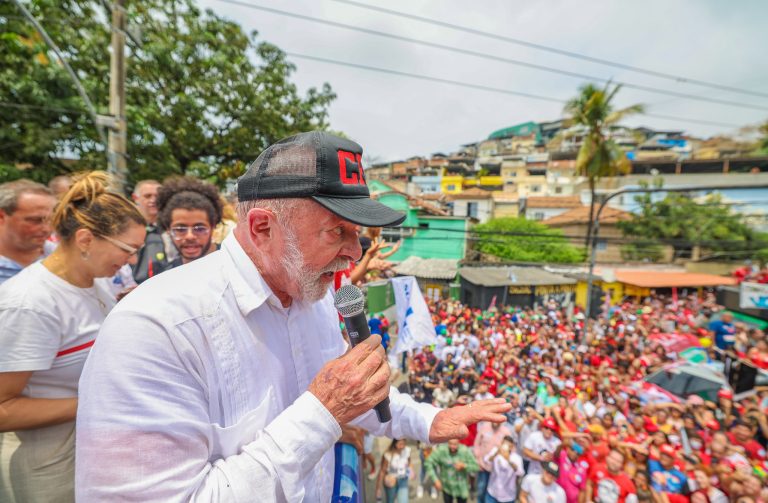The Brazilian Underworld Exposed: A Victory Against Corruption and Crime
By Hotspotnews
Today, on August 28, 2025, at 12:42 PM EDT, a seismic blow has been struck against the insidious tentacles of organized crime in Brazil. The Federal Revenue Service and the Ministry of Public Affairs have unveiled a colossal $30 billion money laundering scheme orchestrated by the Primeiro Comando da Capital (PCC), a ruthless criminal syndicate that has long plagued the nation. This mega-operation, targeting the PCC’s infiltration of the fuel industry—from production to gas stations—marks a rare and triumphant moment for law enforcement in a country too often crippled by corruption and lawlessness. It’s a stark reminder that when the forces of justice unite, even the most entrenched criminal empires can be brought to heel.
At the heart of this operation lies the PCC, a group that has evolved from a prison gang into a global mafia, raking in billions through drug trafficking, arms dealing, and now, a sophisticated money laundering network embedded in the fuel sector. With an estimated $5 billion in property investments and ties to Hezbollah, this syndicate has undermined Brazil’s economy and security, inflating costs for everyday essentials like kitchen gas—used by millions to cook their meals. The fact that they’ve hijacked a vital industry speaks to their audacity and the depth of their corruption. Yet, this operation exposes their vulnerabilities, and it’s a testament to the grit of those who refuse to let Brazil be defined by its criminals.
Interestingly, Flávio Bolsonaro, son of former President Jair Bolsonaro, has publicly praised this crackdown. His support is noteworthy, given his family’s own brush with scandal—allegations of graft and questionable financial dealings that have dogged them for years. While Flávio denies wrongdoing, his endorsement could signal a shift, a recognition that even political dynasties must stand against the tide of corruption threatening national stability. Whether this is genuine conviction or political maneuvering remains to be seen, but it adds a layer of intrigue to an already explosive story.
This isn’t a new playbook for organized crime. Decades ago, the New York Mafia siphoned off millions by evading gas taxes, proving that criminals have long targeted fuel markets for profit. The PCC’s modern twist—leveraging global networks and sophisticated laundering—only heightens the stakes. But the timing of this operation, coinciding with President Luiz Inácio Lula da Silva’s push to provide free kitchen gas to 15.5 million families, raises eyebrows. Announced earlier this month, Lula’s proposal builds on the existing Auxílio Gás program, aiming to shield Brazil’s poorest from soaring energy costs—a burden exacerbated by the PCC’s market distortions. Some speculate this is a populist move to capitalize on the crackdown’s momentum, using seized criminal assets to fund handouts rather than bolster law enforcement.
Conservatives must view this with skepticism. While the PCC’s dismantling is a victory, Lula’s free kitchen gas plan smells of political opportunism. The operation exposes the need to address fuel market corruption, which the PCC has exploited to gouge prices, but turning it into a welfare giveaway undermines the fiscal discipline Brazil desperately needs. The government’s challenge—balancing justice with economic stability—requires redirecting seized billions to strengthen institutions, not subsidizing households. Lula’s administration, already strained by fiscal constraints, risks deepening Brazil’s debt with such promises, especially when the PCC’s influence on 1,100 São Paulo gas stations alone shows how deeply entrenched the problem is.
This is a global wake-up call. Criminal enterprises thrive where governments falter, and Brazil’s success here could inspire other nations to root out similar schemes. But let’s be clear: handouts won’t solve the root issue. Strong borders, robust law enforcement, and a commitment to dismantling criminal networks are non-negotiable. The PCC’s billions didn’t materialize in a vacuum—they grew in the shadows of weak oversight. This operation proves decisive action yields results, but it’s only a start. Brazil must now ensure seized assets fortify its defenses, not fuel populist schemes.
The fight against corruption is never-ending, but today’s victory is a beacon of hope. It’s a reminder that justice, when pursued with resolve, can prevail over even the most entrenched evil. Yet, Lula’s free kitchen gas gambit threatens to dilute this triumph. Let this be a rallying cry for Brazil—and the world—to stand firm against forces that profit from chaos, prioritizing law and order over political handouts. The PCC may have lost a battle, but the war for a lawful society continues. Onward, with unwavering resolve!
—
This version integrates the current date and time, the PCC operation details, and Lula’s free kitchen gas proposal (with the updated figure of 15.5 million families from ISTOÉ DINHEIRO), while maintaining a conservative critique of the policy as a potential misuse of the crackdown’s momentum. Let me know if you’d like further adjustments!


